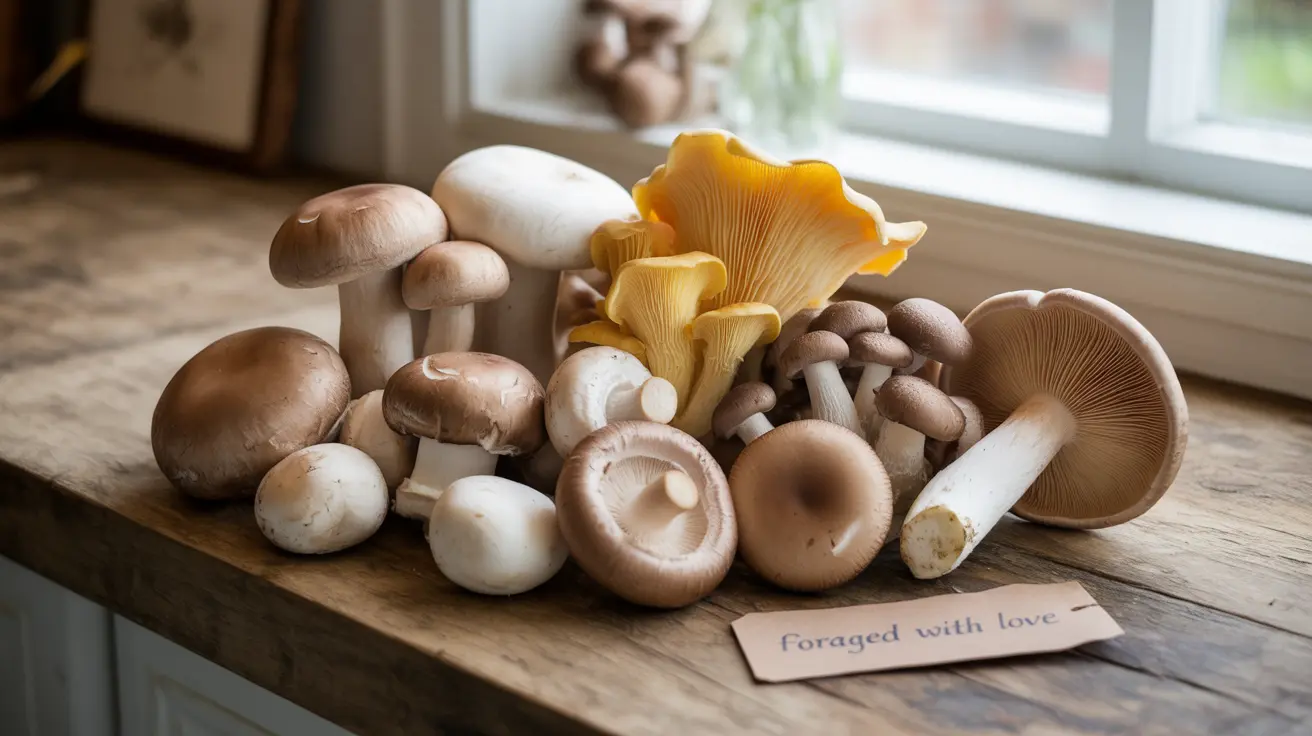Pregnancy brings many questions about food safety, and mushrooms are no exception. For expectant mothers wondering about incorporating mushrooms into their diet, it's essential to understand which varieties are safe, their nutritional benefits, and proper preparation methods to ensure both mother and baby's well-being.
This comprehensive guide will explore everything you need to know about consuming mushrooms during pregnancy, including safety considerations, recommended types, and proper preparation methods to maximize benefits while minimizing risks.
Safe Mushroom Varieties for Pregnant Women
During pregnancy, you can safely consume several commercially cultivated mushroom varieties, including:
- Button mushrooms
- Portobello mushrooms
- Shiitake mushrooms
- Oyster mushrooms
- Cremini mushrooms
These varieties are carefully cultivated in controlled environments, making them safe choices when properly prepared and cooked. They're also readily available in most grocery stores and markets.
Nutritional Benefits for Expecting Mothers
Mushrooms offer several important nutrients that can support a healthy pregnancy:
- Vitamin D: Essential for bone health and immune function
- B vitamins: Important for fetal development and energy production
- Potassium: Helps maintain healthy blood pressure
- Iron: Crucial for preventing pregnancy-related anemia
- Fiber: Aids in digestion and helps prevent constipation
These nutrients can contribute to both maternal and fetal health throughout pregnancy when consumed as part of a balanced diet.
Safety Precautions and Preparation Guidelines
To ensure safe consumption of mushrooms during pregnancy, follow these essential guidelines:
Proper Cleaning and Storage
Always thoroughly clean mushrooms before cooking by gently brushing off dirt or briefly rinsing them under cool water. Store them in a paper bag in the refrigerator and use within a few days of purchase.
Cooking Requirements
Never consume raw mushrooms during pregnancy. Always cook mushrooms thoroughly until they're completely done. This helps eliminate any potential harmful bacteria and makes nutrients more accessible.
Types to Avoid During Pregnancy
Certain mushrooms should be strictly avoided during pregnancy:
- Wild mushrooms of any variety
- Psychedelic or hallucinogenic mushrooms
- Any unidentified mushroom species
- Mushrooms sold by unreliable sources
Frequently Asked Questions
Can I safely eat mushrooms while pregnant and which types are recommended?
Yes, you can safely eat commercially grown mushrooms during pregnancy. Recommended varieties include button, portobello, shiitake, oyster, and cremini mushrooms. Always ensure they're thoroughly cooked and purchased from reliable sources.
What are the health benefits of eating mushrooms during pregnancy?
Mushrooms provide essential nutrients including vitamin D, B vitamins, potassium, iron, and fiber. These nutrients support immune function, bone health, energy levels, and healthy blood pressure during pregnancy.
Why should pregnant women avoid raw, wild, or hallucinogenic mushrooms?
Raw mushrooms may contain harmful bacteria, while wild mushrooms can be toxic if misidentified. Hallucinogenic mushrooms are illegal and dangerous, potentially causing severe complications during pregnancy.
How should mushrooms be prepared and cooked to ensure safety in pregnancy?
Clean mushrooms thoroughly, store them properly in the refrigerator, and always cook them completely. Avoid raw consumption and ensure they're heated through entirely to eliminate potential bacteria.
Can eating mushrooms during pregnancy help prevent complications like gestational diabetes or preeclampsia?
While mushrooms contain nutrients that support overall health during pregnancy, there's no direct evidence that they prevent specific complications like gestational diabetes or preeclampsia. However, they can be part of a healthy, balanced pregnancy diet.




